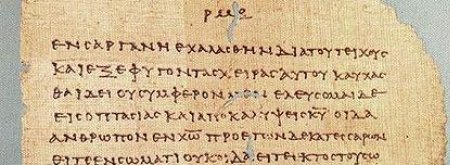
Did Jesus Really Exist?
Many people today doubt Jesus was a real person. Here are 8 ancient non-biblical sources that provide evidence of his existence.
These resources will get you started on thinking through common questions about issues like suffering, science and Christianity, the reliability of the Bible and many more.
Follow the recommendations at the end of each resource to explore further.

Many people today doubt Jesus was a real person. Here are 8 ancient non-biblical sources that provide evidence of his existence.

When there is so much evil and suffering all around us, how can we believe God is good?

Does the problem of suffering deal a fatal blow to the idea of a good, all-powerful God?

Helpful pointers for answering questions about the harsh reality of suffering.

Faced with a dizzying array of religions, how can anyone say 'this one way is the truth and the only truth’?

With so many different religions and ways of viewing the world, how can Christians claim their way is the right one?

How can we know whether there is more than one way to salvation?

Do any other ancient documents help to confirm the trustworthiness of the New Testament?

There are many different views of Jesus. What's the truth?

This video examines the historical evidence for the life of Jesus, including discussion of the non-biblical evidence.

A careful consideration of the likely dates at which the New Testament documents were written.

Many non-Christians see the Bible as completely unreliable. Here are some tips for addressing this challenge.

Adrian Holloway tackles the question of whether we can trust what we read in the New Testament or should dismiss it as unsubstantiated myth.

Are God and science necessarily in competition? Does science fit better with Christian belief or with atheism?

Scientism says that science is the source of all our knowledge. Does this make sense or are there other sources for what we can know?

A response to the accusation that science is the enemy of Christianity.

Absolute truth is often thought to lead to oppression and injustice. But what if it is the only way to real freedom?

Some people say there is no 'truth', each person decides what is true for them. How might a thoughtful person answer this view?

Gavin McGrath examines whether we can talk meaningfully about truth. Is the truth 'out there' or perhaps 'in here'?